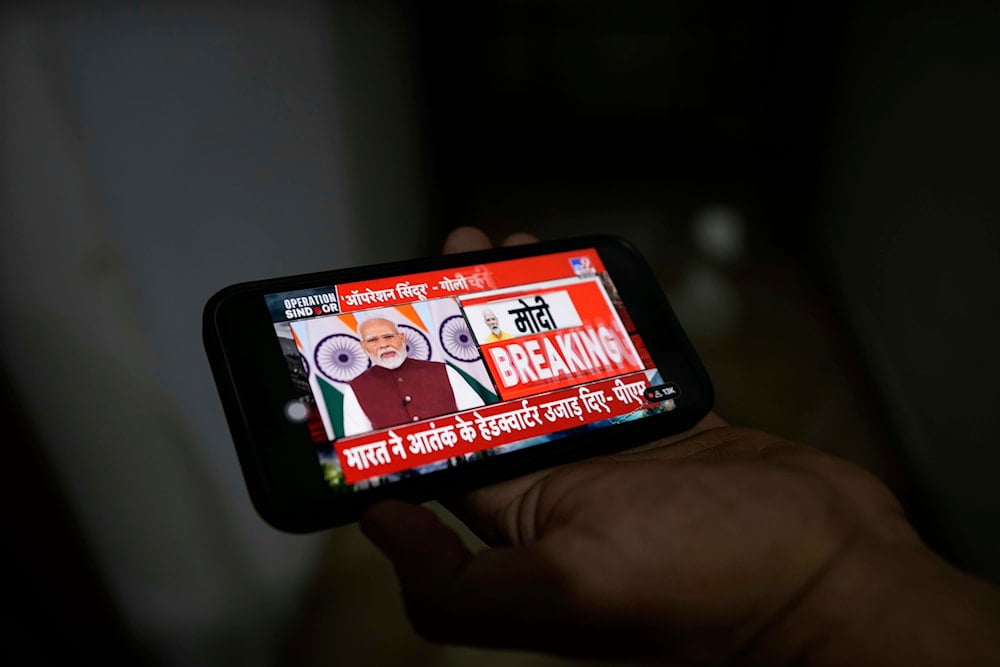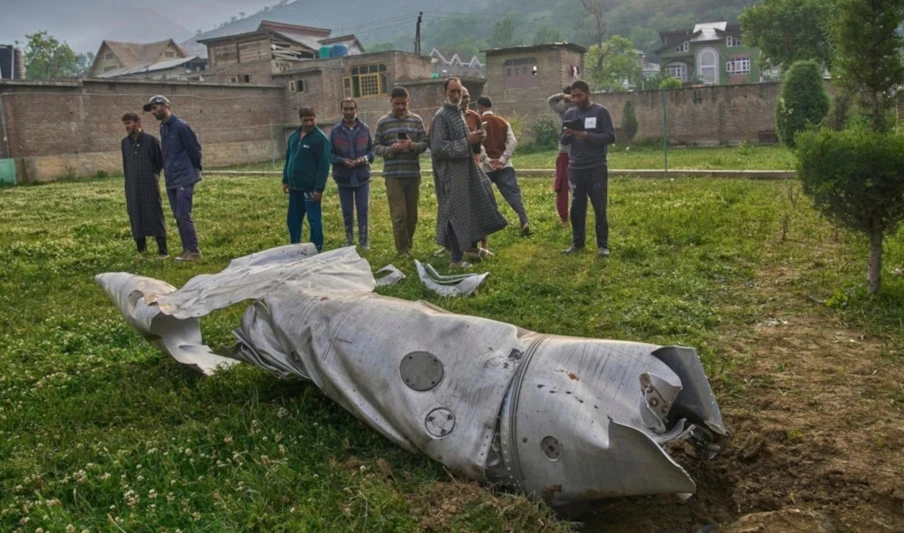Modi signals hard line on Pakistan despite US-brokered ceasefire
Indian PM Narendra Modi warns that military operations are merely on hold, vowing a decisive response to any future attacks.
-

A man watches on a mobile phone as Indian Prime Minister Narendra Modi addresses the nation about Operation Sindoor, in Jammu, India, Monday, May 12, 2025. (AP)
Indian Prime Minister Narendra Modi issued a stern warning on Monday, declaring that India has only "paused" its military operations and reserves the right to "retaliate on its own terms" if another "terror attack" takes place. His remarks came just days after a US-brokered ceasefire between India and Pakistan came into effect following a deadly escalation in the disputed Kashmir region.
Speaking publicly for the first time since the ceasefire began, Modi emphasized that the current calm should not be mistaken for a change in India’s military posture.
“We will be monitoring every step of Pakistan,” he said in a televised address. "If we talk to Pakistan, it will be only about terrorism and Pakistan-occupied Kashmir. Terror and talks can’t go together. Nor can terror and trade."
The US mediation in the India-Pakistan conflict came as violence intensified, with Pakistan launching counterattacks following Indian strikes on three air bases.
India carried out the strikes after an earlier attack in Kashmir, for which New Delhi blamed Islamabad, while Pakistan has denied any involvement.
Pakistan responds to ceasefire terms
Pakistani Prime Minister Shehbaz Sharif, speaking during a meeting with the Turkish ambassador, said Islamabad accepted the ceasefire “in the spirit of peace” but warned that Pakistan will not tolerate violations of its sovereignty or territorial integrity.
On Sunday, Pakistan’s military spokesperson, Lt. Gen. Ahmad Sharif, reaffirmed the country’s commitment to the ceasefire, stating that Pakistan would not initiate hostilities.
Senior military officials from both sides held a hotline conversation on Monday to review the implementation of the ceasefire along the Line of Control (LoC). According to the Indian Army, both parties reaffirmed their intention to avoid further conflict, agreeing not to "fire a single shot" and to consider reducing troop deployments near the border.
Local officials reported a quiet night across the LoC, with no new incidents. Civilians who had fled during the earlier shelling have begun to return to their homes, and normal life is gradually resuming in the affected areas.
Both countries have reopened their airspaces, and India resumed operations at 32 previously closed airports on Monday.
Unverified claims of losses on both sides
While India alleged the deaths of over 100 militants and the destruction of key militant facilities, Lt. Gen. Rajiv Ghai claimed that between 35–40 Pakistani soldiers were also killed during the operations.
In contrast, Pakistan claimed it had killed 40–50 Indian soldiers, shot down five Indian fighter jets, and damaged 26 Indian military installations. These battlefield claims remain unverified by independent sources.
Despite the damage, India's Air Chief Marshal AK Bharti stated that India’s military bases and air defense systems remained fully operational. “Our fight is with terrorists, not with the Pakistan military or its civilians,” he said.
Read next: Timeline of India-Pakistan conflicts: 1947 partition - 2025's Pahalgam

 3 Min Read
3 Min Read










